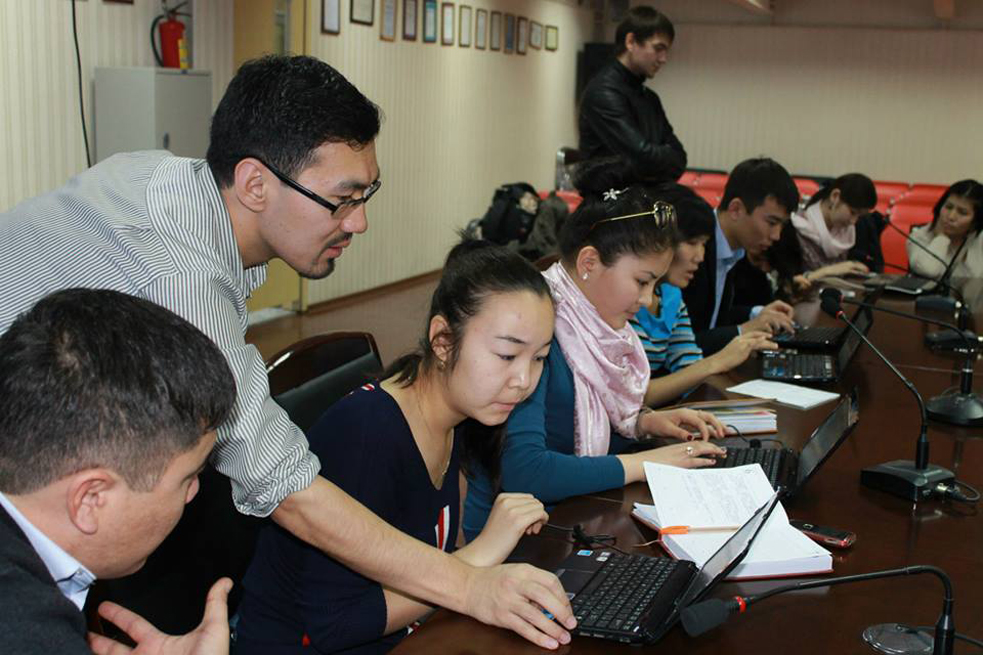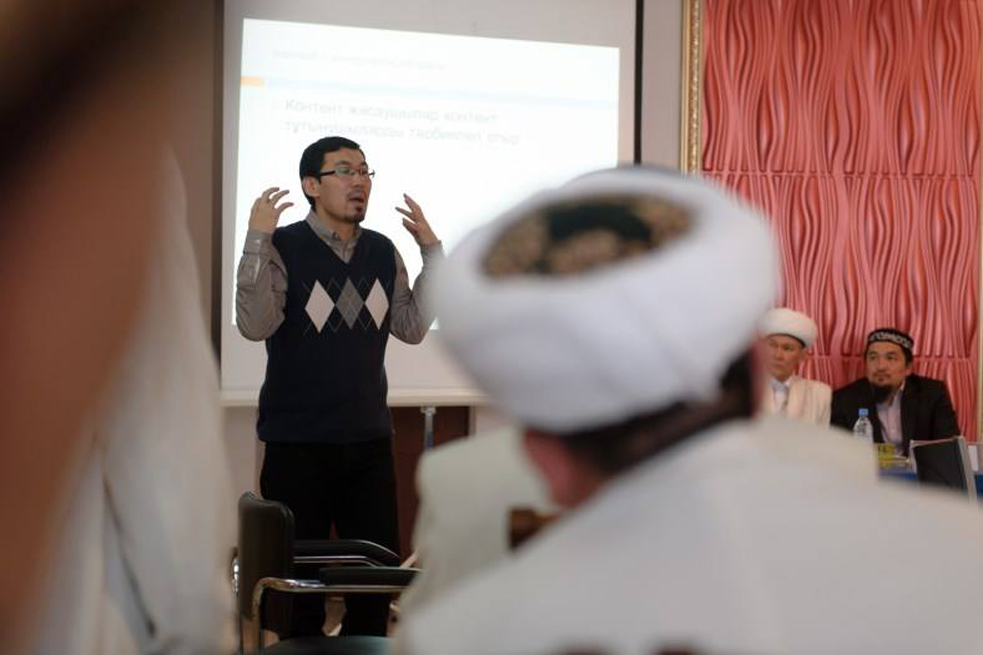
Asqat Yerkimbay trains local journalists in how to get involved in global conversations. He also uses the TED Open Translation Project to revive his language, Kazakh. Photo: Courtesy of Asqat Yerkimbay
When Kazakh journalist Asqat Yerkimbay learned about TED’s Open Translation Project, he realized it could be instrumental in reviving his native tongue. Under Soviet rule, communicating in Kazakh became viewed as a sign of ignorance, and although it regained its standing as the national language after Kazakhstan declared independence in 1991, Russian remains the lingua franca for the culturally diverse country. Usage of Kazakh has dwindled because there remains a perception that it has failed to keep pace with the modern world.
Yerkimbay wants to demonstrate that this just isn’t the case.
“I wanted to put Kazakh into a global conversation,” says Yerkimbay, who, through his NGO, Minber, both teaches journalism and coaches young journalists in how to use new media in the remote areas of his country. He wants to empower Kazakh-speaking reporters to get involved in the global news community. But this is an uphill battle, because people think Kazakh—one of 23 languages spoken in Kazakhstan—lacks contemporary scientific and academic terminology.
“When I was getting my master’s degree in Wyoming, we had to take a statistics class. I was terrified, having had no experience with stats before. To prepare, I did some research online, focusing on census data about the use of Kazakh in my country,” he recalls. What he found dismayed him.
“Even though as much as 74 percent of the people claim some knowledge of Kazakh, far fewer actually use it for everyday communication. And many want to learn Kazakh, but still feel that the language [isn’t equpped for] medicine or the new sciences,” he says. “So, I want to show them: Look, here’s the Open Translation Project and here are TED Talks in Kazakh. With these videos, I want to prove to them that Kazakh can be a medium of the global conversation on what’s new in science. And all these ideas worth spreading.”
The OTP is not the first avenue that Asquat has pursued to strengthen Kazakh online. He was involved in the Neweurasia project, where citizen journalists from various Central Asian countries wrote stories in English and local languages that ignored political divides. He also helped translate Facebook and the WordPress platform into Kazakh.
Although he devotes a lot of his time to language activism in the digital world, Yerkimbay becomes most animated when talking about the importance of making real offline connections.
“Every other Thursday, we gather in my office for Chay-Fi, which means Tea and Wi-fi. We drink tea, which is important in our culture, and we can use the free wi-fi to look at stuff online, like TED Talks. Many of my friends think, ‘I cannot get involved in the OTP because I don’t speak English.’ So I show them a talk, and I say, ‘Look, you have perfect Kazakh. And you have knowledge of this science, which I don’t have. So, you could volunteer as a reviewer.’ And they go ‘Oh, so I can really help with this!’ And that friendly atmosphere builds connections.”
Yerkimbay is planning an Open Translation Project workshop this summer, where in addition to Kazakh translators, he would like to invite OTP Language Coordinators from around the world. He intends to use stories from translators working in other languages to illustrate the power of participating in a project like the OTP.
“It’s not only about you guys—TED. It’s mostly about us—the OTP Language Coordinators,” he says. “I want to invite them and tell my community: ‘Look, here’s a girl from Mauritius. She speaks three languages, four languages. This is what she’s doing.’ I may not inspire my community, but [these others] may inspire them.”

Asqat Yerkimbay leads a training session for local imams in Kostanay. Photo: Courtesy of Asqat Yerkimbay
Comments (15)